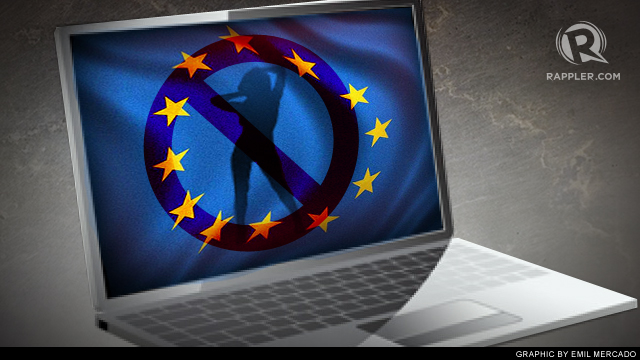SUMMARY
This is AI generated summarization, which may have errors. For context, always refer to the full article.

MANILA, Philippines – The European Union (EU) parliament is set to vote Tuesday, March 12, on a proposal that could lead to a potential pornography ban across the various European media types, including pornography on the Internet.
The motion for an EU parliament resolution “on eliminating gender stereotypes in the EU” has a number of proposals to improve gender equality wihin EU member states. One of the contentious portions that has civil liberties advocates concerned, however, is article 17 of the motion.
Article 17 states that it “calls on the EU and its Member States to take concrete action on its resolution of 16 September 1997 on discrimination against women in advertising, which called for a ban on all forms of pornography in the media and on the advertising of sex tourism.”
Combined with a portion in article 14, which “calls on the Commission to draw up in partnership with the parties concerned a charter to which all internet operators will be invited to adhere,” it seems to read as a ban on pornography within the digital field.
Civil liberties advocates are worried about the language used within the motion. Christian Engström, Member of the European Parliament for the Swedish Pirate Party, notes on a blog post how “the exact meaning on this proposed ban on pornography is unclear, since neither the 1997 resolution nor the text we will be voting on next week contains any definition of what is meant by ‘in the media.’
Despite this, Engström also notices the resolution as being rather specific on the Internet, citing it as “yet another attempt to get the internet service providers to start policing what citizens do on the internet.”
Wired does mention that if this motion is voted for, it isn’t a binding or in favor of everything in the motion for resolution. Wired explains, “It’s simply the European Parliament signalling that it agrees with the actions proposed by the lead author… Dutch MEP Kartika Liotard. The European Parliament (unlike most national parliaments within Europe) can’t actually draft legislation by itself. That’s reserved for the executive branch, the European Commission.”
Wired adds, “These kinds of endorsements, once passed, are effectively taken by the European Commission as an indication of the opinion of the Parliament, and it then drafts bills accordingly.” – Rappler.com
Add a comment
How does this make you feel?
There are no comments yet. Add your comment to start the conversation.